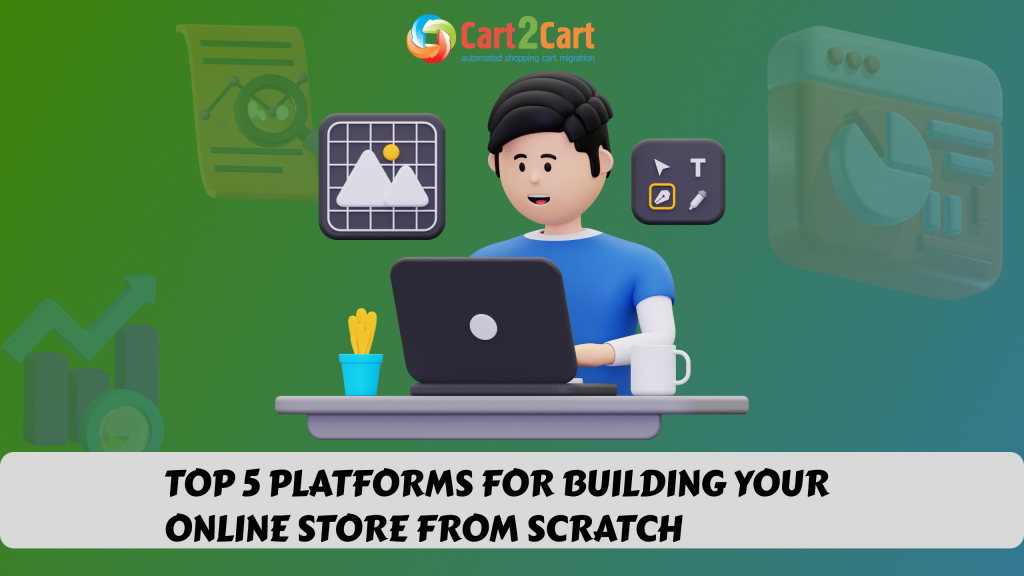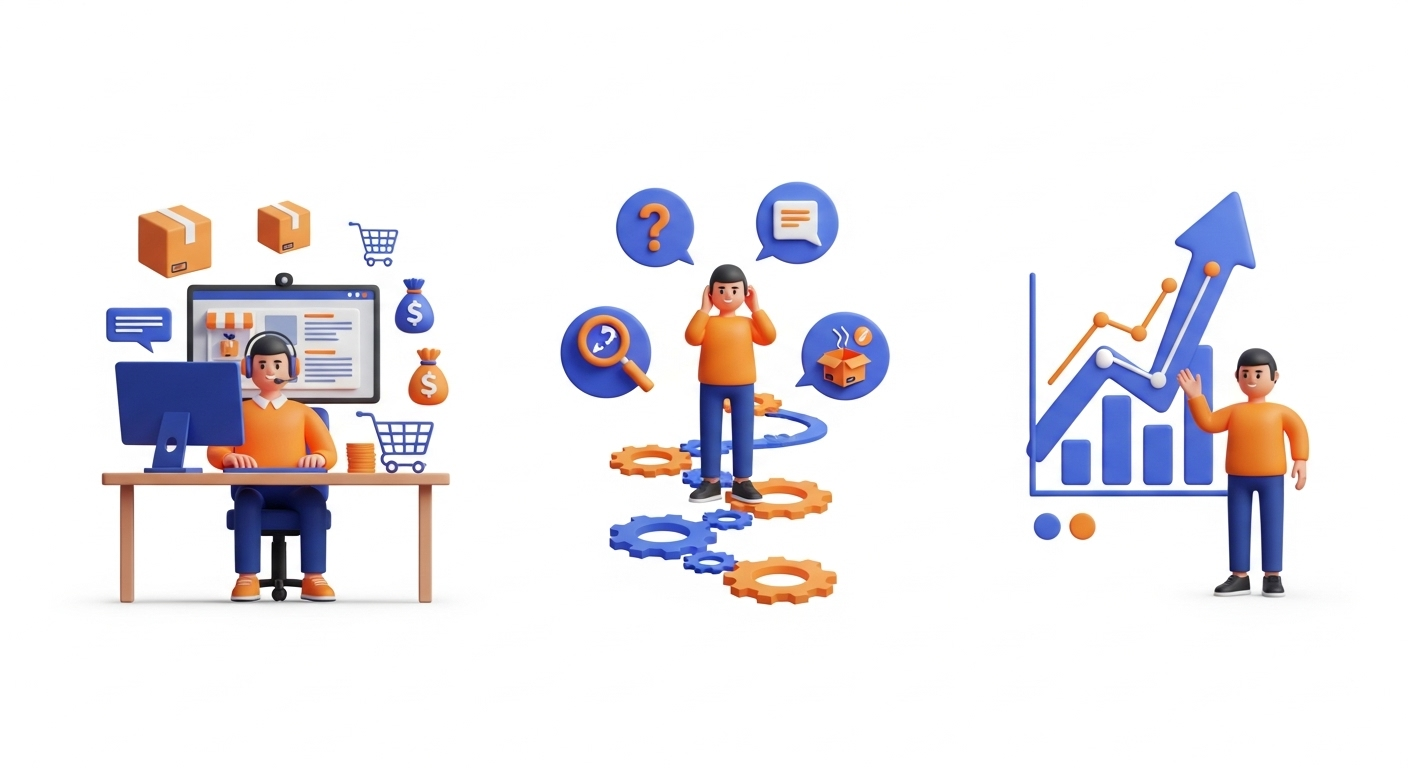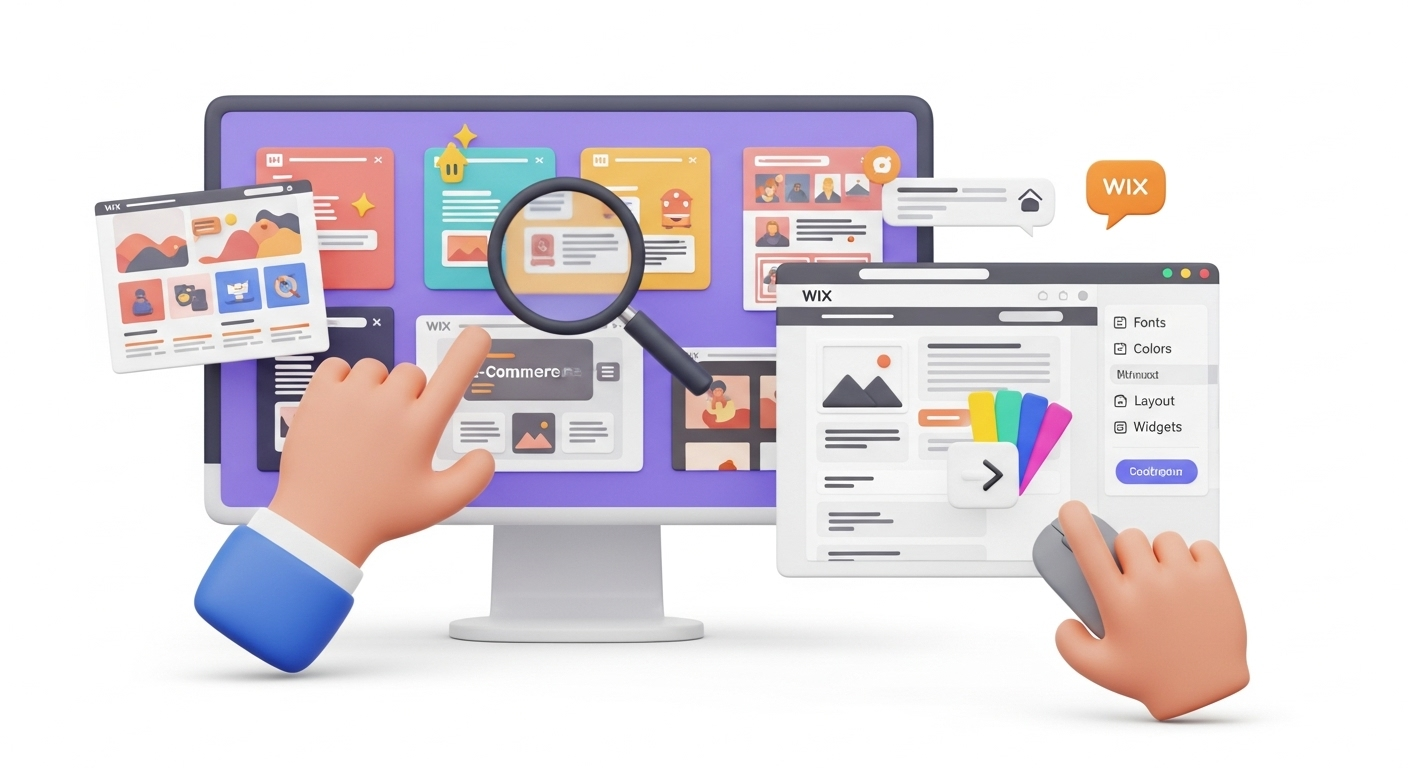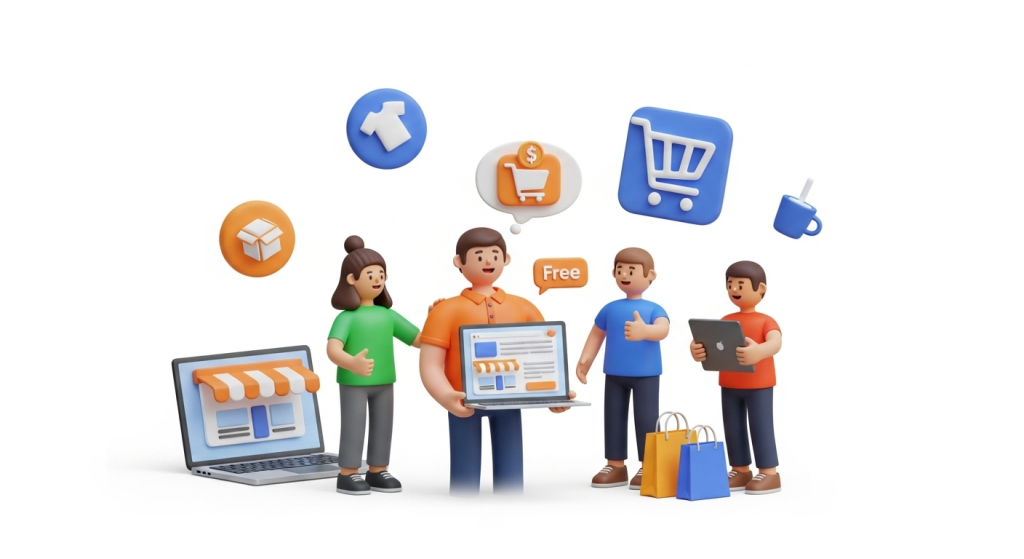Starting an online store from scratch can be an overwhelming process, but choosing the right eCommerce platform can make all the difference. With numerous options available, it’s crucial to select a platform that aligns with your business needs, budget, and technical expertise. In this article, we will explore the top 5 platforms for building your online store from scratch, detailing their features, pros, and cons to help you make an informed decision. For a comprehensive strategy, consider our checklist for the perfect shopping cart.
1. Shopify – The Best All-in-One Solution
Shopify is one of the most popular eCommerce platforms, known for its ease of use and robust features. Whether you're a beginner or an experienced seller, Shopify provides a seamless setup process with a variety of customizable themes and an intuitive drag-and-drop interface.
Key Features:
- User-friendly dashboard with no coding required
- Secure hosting and built-in SSL encryption
- Hundreds of mobile-responsive themes
- Integration with hundreds of payment gateways. For more details on payment processing, visit our payment FAQs.
- Powerful app marketplace for extended functionalities
Pros:
✔ Quick and easy setup
✔ Excellent customer support
✔ Scalable for businesses of all sizes
✔ Built-in marketing and SEO tools
Cons:
✖ Monthly subscription fees can add up
✖ Limited customization compared to open-source solutions
Best for: Small to large businesses looking for a hassle-free eCommerce experience.
2. WooCommerce – The Best for WordPress Users
WooCommerce is a free, open-source plugin for WordPress that allows you to transform your website into a fully functional online store. It offers high customization and flexibility, making it a great choice for tech-savvy entrepreneurs.
Key Features:
- Seamless integration with WordPress
- Extensive customization with themes and plugins
- Supports multiple payment gateways
- Open-source and free to use
- Advanced blogging capabilities
Pros:
✔ No upfront cost (except hosting and domain)
✔ Large community support
✔ Full control over store design and functionality
Cons:
✖ Requires hosting and domain setup
✖ Can be complex for beginners without technical knowledge
Best for: WordPress users and businesses that need high customization options.
3. BigCommerce – The Best for Growing Brands
BigCommerce is a powerful SaaS (Software-as-a-Service) platform designed for scalability. It is ideal for businesses that anticipate rapid growth and need enterprise-level features. Learn more about BigCommerce migration here.
Key Features:
- No transaction fees
- Built-in SEO and marketing tools
- Supports multi-channel selling (Amazon, eBay, social media)
- Flexible API for advanced customization
- Secure hosting with PCI compliance. Review our security policy for further information.
Pros:
✔ Highly scalable for growing businesses
✔ Excellent SEO capabilities
✔ Wide range of built-in features (reduces reliance on third-party apps)
✔ 24/7 customer support
Cons:
✖ More expensive than other platforms
✖ Learning curve for beginners
Best for: Medium to large businesses planning for long-term growth.
Ready to Build Your Online Store?
Make your migration to the best eCommerce platform smooth and stress-free with Cart2Cart! Transfer your products, customers, and orders automatically—no downtime, no data loss. Start your seamless migration today!
TRY IT FREE
4. Wix eCommerce – The Best for Small Businesses & Beginners
Wix is a website builder that also offers eCommerce functionality. It is perfect for beginners who need an easy-to-use platform with beautiful design templates. For a smooth transition, check out our Wix Migration Checklist.
Key Features:
- Drag-and-drop website builder
- Over 900 designer-made templates
- Integrated payment solutions (PayPal, Stripe, etc.)
- Automated tax and shipping calculation
- Built-in marketing and SEO tools
Pros:
✔ Extremely beginner-friendly
✔ Affordable pricing plans
✔ Modern and stylish templates
✔ Great for small businesses and solopreneurs
Cons:
✖ Limited scalability for large stores
✖ Less flexibility compared to other platforms
Best for: Small businesses and beginners who need a simple and visually appealing store.
5. Magento (Adobe Commerce) – The Best for Enterprises
Magento (now Adobe Commerce) is a powerful open-source platform known for its flexibility and extensive customization options. It is best suited for businesses with large inventories and complex selling needs.
Key Features:
- Unlimited product listings and customization
- Advanced SEO and marketing tools
- Multi-store capabilities
- Robust inventory management system
- Highly secure and scalable
Pros:
✔ Best-in-class customization options
✔ Supports high-volume businesses. Considering a large-scale move? Explore our ultimate data migration service.
✔ Advanced features for international selling
✔ Strong community and developer support
Cons:
✖ Requires technical expertise to set up and manage
✖ High development and maintenance costs
Best for: Large enterprises and businesses requiring complex, customized solutions.
Conclusion
Choosing the right eCommerce platform depends on your business goals, technical knowledge, and budget. Shopify is ideal for a quick, hassle-free setup, while WooCommerce is perfect for those who want complete control. BigCommerce caters to scaling businesses, Wix is great for beginners, and Magento is the best option for enterprise-level needs.
If you’re looking to migrate to a new platform, Cart2Cart can help make the transition seamless and stress-free. Try a free demo migration today and take your online store to the next level!
Monthly Update – January 2026
As we step into January 2026, the eCommerce landscape is being reshaped by advancements in artificial intelligence and hyper-personalization. Merchants are increasingly leveraging AI-driven analytics to understand customer behavior, predict trends, and offer tailored product recommendations, significantly enhancing the shopping experience. This move towards individualized customer journeys is critical for converting casual browsers into loyal customers. Furthermore, the integration of AI extends to automated customer service, intelligent inventory management, and optimized pricing strategies, allowing businesses to operate with unprecedented efficiency. For online stores looking to stay ahead, adopting solutions that facilitate seamless AI integration and robust data processing is paramount. This strategic focus ensures that businesses can not only meet but anticipate consumer needs, fostering deeper engagement and driving sustained growth in a highly competitive market.
For more details, explore our FAQ section or schedule a call with a migration expert.






